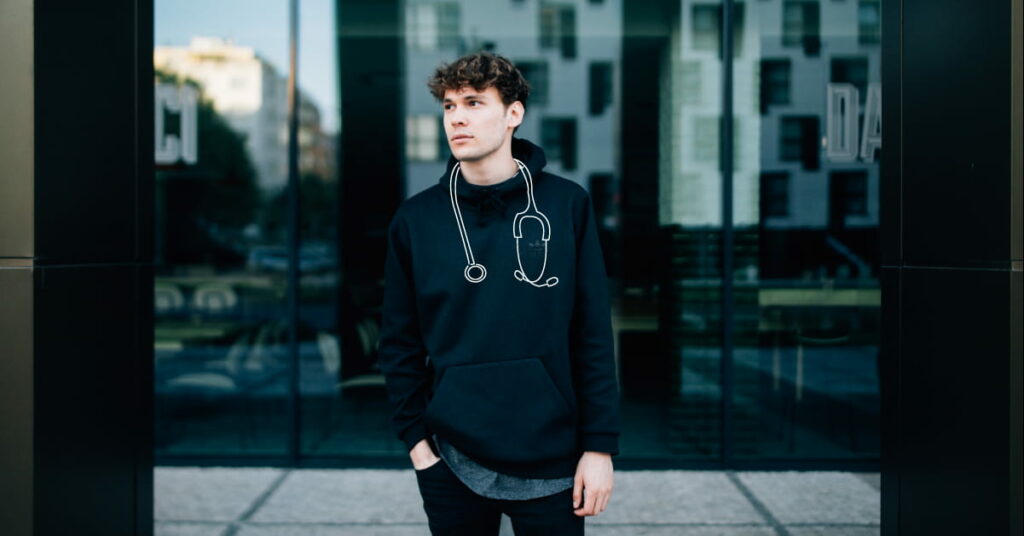
Applying to medical school is a challenging and rigorous process. And most students starting their undergraduate degrees don’t know all the pathways available to help them achieve their dreams of being accepted into medical school. They have many questions, such as: Where do I start? How do I stand out? Do I have to major in biology?
“A lot of students who want to go to medical school think that biology is the only option,” says Isaac Derman, ’18. Isaac received his bachelor’s degree from Oregon State University in public health focused on health promotion and health behavior.
“I feel like having a background in public health gave me a different perspective compared to other applicants. Especially during the interviews, it gave me something else to talk about, and it showed I had a passion for helping people,” he says.
During his time in OSU’s College of Public Health and Human Sciences (CPHHS), Isaac says the required internship, extracurricular activities and guidance from several professors and mentors were extremely valuable.

And he’s not the only one. Marissa Song Mayeda, who earned two master’s degrees from OSU in 2020 and 2021, says the experience she gained as a master’s student at OSU gave her better insight into what type of physician and public health practitioner she wants to be. Her degrees are in public policy, as well as an MPH in health promotion and health behavior.
“I always knew I wanted to be in the allied health field because of my mom, who is a nurse and my hero,” she says. “I was originally interested in nursing, but I ended up wanting to go to medical school. I was not interested in being a biology or chemistry major, and I really enjoyed the community health work my family grew up doing.”
In the CPHHS, Marissa took epidemiology courses that led her to becoming Linn County’s first epidemiologist at the onset of the pandemic. In this role, she trained contact tracers and case investigators, reported data, oversaw outbreaks and assisted the OSU Center for Health Innovation in starting the TRACE-COVID-19 Call Center in Corvallis.
“I really liked the amount of opportunities the college had in terms of professional and academic experience, and I was able to use my work as an epidemiologist as a great experience to talk about during my medical school interviews,” Marissa says.
Both in their first year at Oregon Health & Science University (OHSU), Isaac and Marissa credit the knowledge and resources they gained at the CPHHS and suggest other students take advantage of the resources offered.
“It’s impossible to go wrong at Oregon State. They’re so organized, and there are many advisors who are knowledgeable and really helped me throughout my undergraduate career and after graduation during the application process,” Isaac says.
“Part of the reason that I chose to apply to OSU for my MPH is that they allow you to take medical school prerequisites, like organic chemistry, biology and biochemistry,” Marissa says. “But what solidified enrolling was how kind and helpful everyone was. That was important for me because I knew that there would be folks who wanted to see me thrive.”

Isaac and Marissa advise finding a support system and overcoming failure during the application process.
“I know a lot of people don’t pursue medical school because they feel like they’re not going to get in,” Isaac says. “That’s their decision, and maybe they truly don’t want to do it, but I believe not doing something because you feel like you’re not going to do well automatically rules you out. It’s better to attempt it and not do well, learn from it and try again. Try your hardest and see what happens before ruling yourself.”
Isaac has enjoyed working in the emergency department as a medical scribe and plans to focus on emergency medicine after graduating from OHSU.
“One of the best pieces of advice given to me was to find your cheerleaders. Find friends, mentors and support systems that can help you on the journey, because it can be a lot,” Marissa says.
After graduating from OHSU, Marissa hopes to bridge the gap between public health and medicine, and incorporate health innovation and social justice into her work.
Are you hoping to attend medical school? See how our pre-med and allied health options fit into your interests at health.oregonstate.edu/academics/pre-med.